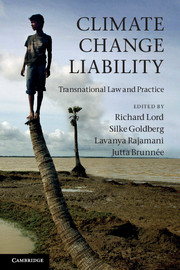Book contents
- Frontmatter
- Contents
- Contributors and Editorial Board members
- Foreword
- Acknowledgements
- Abbreviations
- Part I Legal, scientific and policy aspects
- Part II National laws
- Asia and Pacific
- 5 Australia
- 6 China
- 7 India
- 8 Indonesia
- 9 Japan
- Africa and the Middle East
- Europe and Eurasia
- North America
- Central and South America
- Selected resources
- Index
- References
9 - Japan
from Asia and Pacific
Published online by Cambridge University Press: 05 June 2012
- Frontmatter
- Contents
- Contributors and Editorial Board members
- Foreword
- Acknowledgements
- Abbreviations
- Part I Legal, scientific and policy aspects
- Part II National laws
- Asia and Pacific
- 5 Australia
- 6 China
- 7 India
- 8 Indonesia
- 9 Japan
- Africa and the Middle East
- Europe and Eurasia
- North America
- Central and South America
- Selected resources
- Index
- References
Summary
The Japanese legal system
9.01Contemporary Japanese law is primarily based on statute law, which underlies the present Constitution (‘Nihonkoku kenpo’) enacted in 1946 as the ‘Supreme Law of the Nation’. Although the Constitution and some laws had been revised under the influence of US law during the period of the Allied occupation after the Second World War, major codes, including the Civil code and the Criminal code, were modelled on the French and German codes and are still heavily influenced by the Civil law system.
9.02The main sources of the law, in addition to the Constitution, are (i) legislation, which is enacted by the Diet (Parliament), (ii) cabinet orders and ministerial ordinances, which are enacted by the central government, and (iii) local regulations enacted by local authorities within their power under legislation. While there has been debate on whether or not judgments of courts are to be considered as sources of law, judgments, especially those of the Supreme Court, are in most cases respected and followed as precedent by lower courts. The courts have played a critical role in the development of Japanese law, especially in areas such as environmental law.
- Type
- Chapter
- Information
- Climate Change LiabilityTransnational Law and Practice, pp. 206 - 242Publisher: Cambridge University PressPrint publication year: 2011



